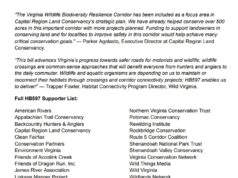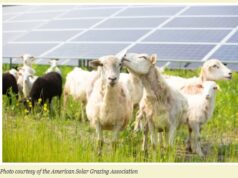This piece will be appearing in newspapers in my conservative congressional district (VA-06).
Trump is right that there are problems with our trade deals. But the problems are not at all what Trump claims.
According to Mr. Trump, the United States has been had—out-bargained and out-maneuvered by other nations. So our country gets hurt by the deals, while other nations make out like bandits.
But there’s no sign of that. Taken as a whole, and in comparison with other advanced economies in the world, the American economy is doing rather well. We’re still the world’s most dominant nation economically.
The real problem with how the U.S. is doing its trade deals is not between the United States and other nations, as Trump asserts. Rather, the problem is inside the U.S., between those parts of the economy that are reaping the benefits of these deals and those parts that are taking a hit.
Introductory economics courses teach how trade makes every nation richer. One learns how, by each specializing in those things it does relatively more efficiently, both trading partners can use “comparative advantage” to achieve a greater net national wealth.
But greater wealth for the nation as a whole doesn’t mean everybody benefits. And we can see how – during this era of globalization — the unequal distribution of this greater wealth has changed America: the share of our national income going to corporate profits is at an all-time high, while the share going to wages is the lowest it has been in living memory.
Globalization has served capital much better than it has served labor. It has forced American workers to compete against low-wage workers in much poorer nations, which has enabled corporations to pay American worers less or even to out-source their jobs to those poorer nations.
Corporations get richer. American workers’ incomes fall toward the levels earned in places like China, or India, or Mexico.
Other nations didn’t steal our jobs. America’s corporate system – using trade deals – got the door open to ship the jobs to where labor is cheap.
When these trade deals get negotiated – like NAFTA back in the 90s – we hear that measures will be taken to protect our workers and our environment. We will not let these deals become “a race to the bottom,” we’re told, in which American production has to compete against production in nations where workers can be exploited because they have no legal rights, or where the environment can be despoiled because there is no regulation of environmental impact.
But these pious pronouncements don’t get followed up once the deals are struck. The feared “race to the bottom” has become a reality.
And now the pending TPP trade deal threatens to be perhaps the worst deal in terms of protecting our workers and our environment — and a raft of our other values — from a system that disregards all values that do not register on a corporate bottom line. The TPP creates a mechanism by which any nation or state or smaller community that passes laws to protect other values could be compelled to compensate businesses for whatever decrease in their profits that causes compared to an economy ruled solely by the pursuit of profit.
Excessive corporate power may be nowhere more evident than in its ability to drive American trade policy, to the detriment of all our other values that might rightly compete with profit-maximization.
Leaders from both parties have participated in this travesty. Although almost all the opposition to this creeping corporate takeover has come from the Democratic side, Democratic Presidents Clinton and Obama (as well as GW Bush) have pushed these deals.
It remains to be seen whether a president Hillary Clinton would correct the current defects of our move toward globalization.
But it is already clear that Donald Trump is just demagoguing the issue. He’s trying to persuade people to imagine their economic pain is due to America being pushed around, rather than a shift of wealth to the corporate system, and that we need a tough guy like him to impose his will on the world.
What voters should be listening for is not some chest-thumping promise that America will stand tall again. (As a nation, on the world stage, America is still well respected – economically, diplomatically, and militarily.) Rather, what we need to hear is how we will stop allowing our trade arrangements to enrich the few and impoverish the many.
Ask our candidates: how will this race to the bottom be turned around? And how can the extra wealth our nation gains from trade deals be spread around so all Americans can benefit?




![[UPDATED 1/29/26] Audio: Sen. Tim Kaine Talks to Blue Virginia About His “Five-Point Plan” to Fight Trump’s Orban-Like Assault on US Democracy; Civil Disobedience a la MLK Jr.; Trump’s Bogus “Energy Emergency”; the Crucial Importance of the 2025 VA Elections; etc.](https://bluevirginia.us/wp-content/uploads/2025/02/kaineinterview2-238x178.jpg)





![Video: Rep. Suhas Subramanyam (D-VA10), Who Was in the Room for Ghislaine Maxwell Deposition, Says She Was “robotic,” “unrepentant,” a “monster [who] should be behind bars forever”](https://bluevirginia.us/wp-content/uploads/2026/02/suhas0209-100x75.jpg)

